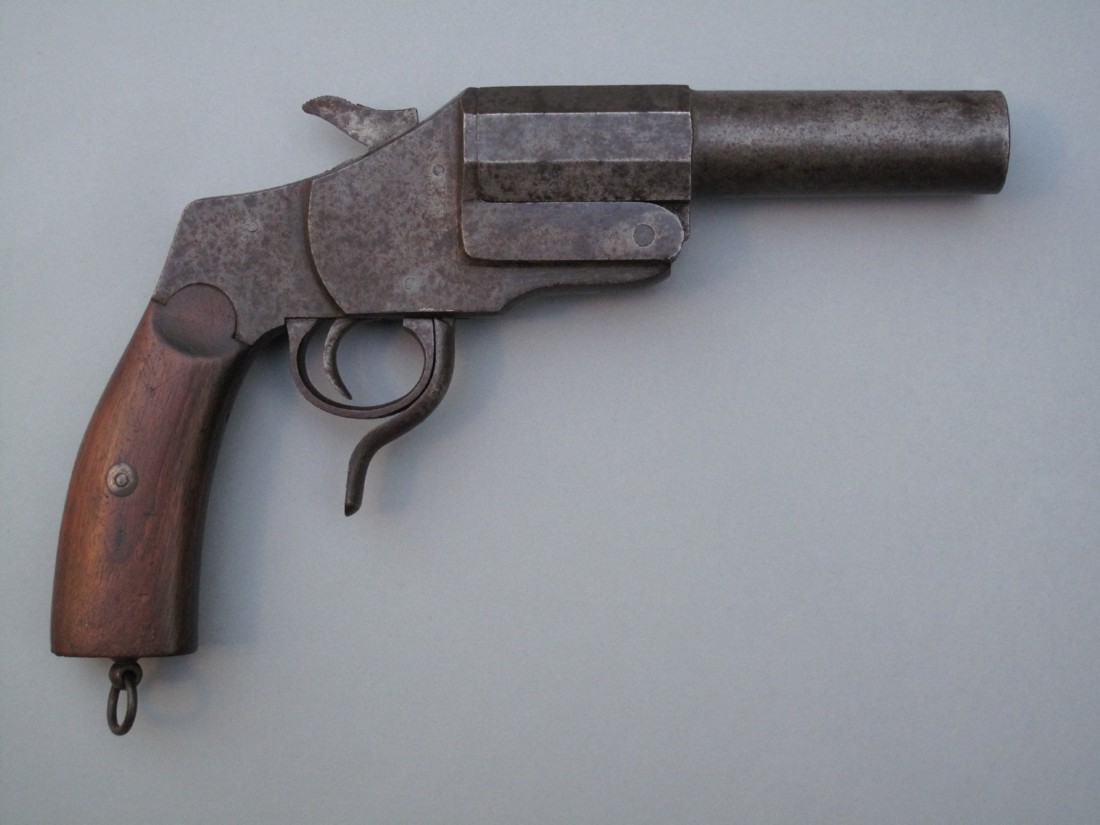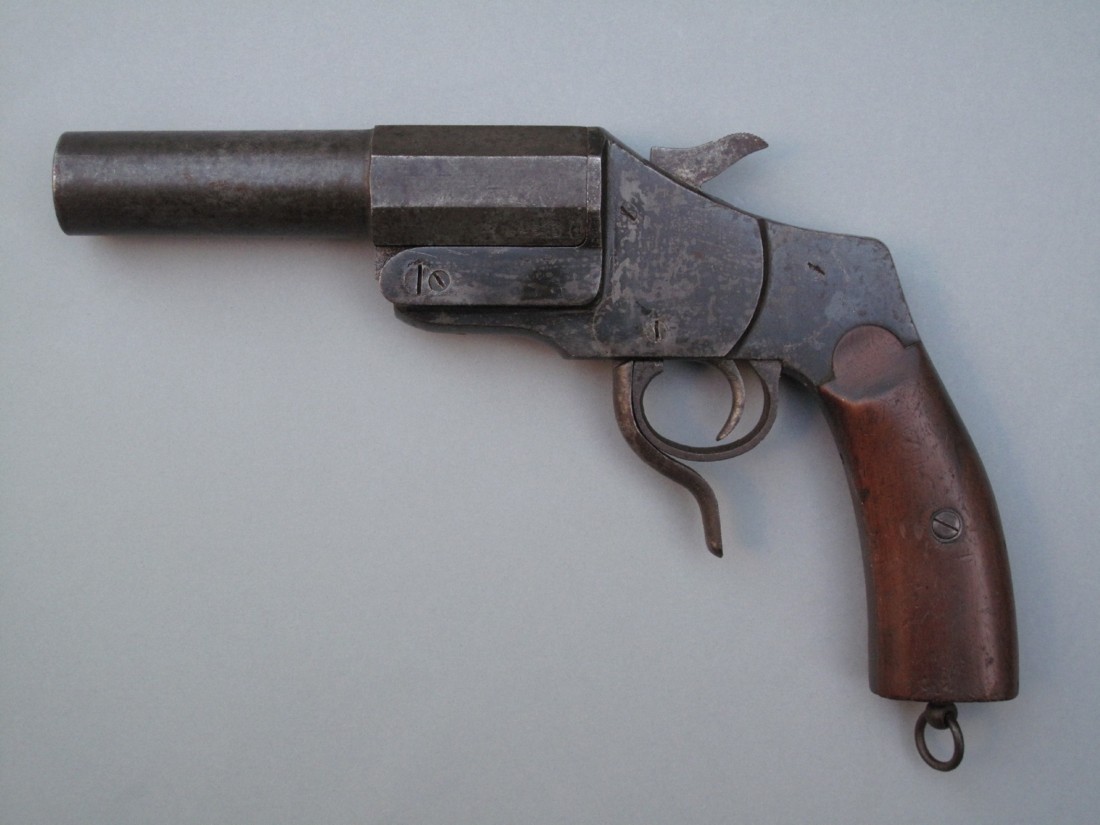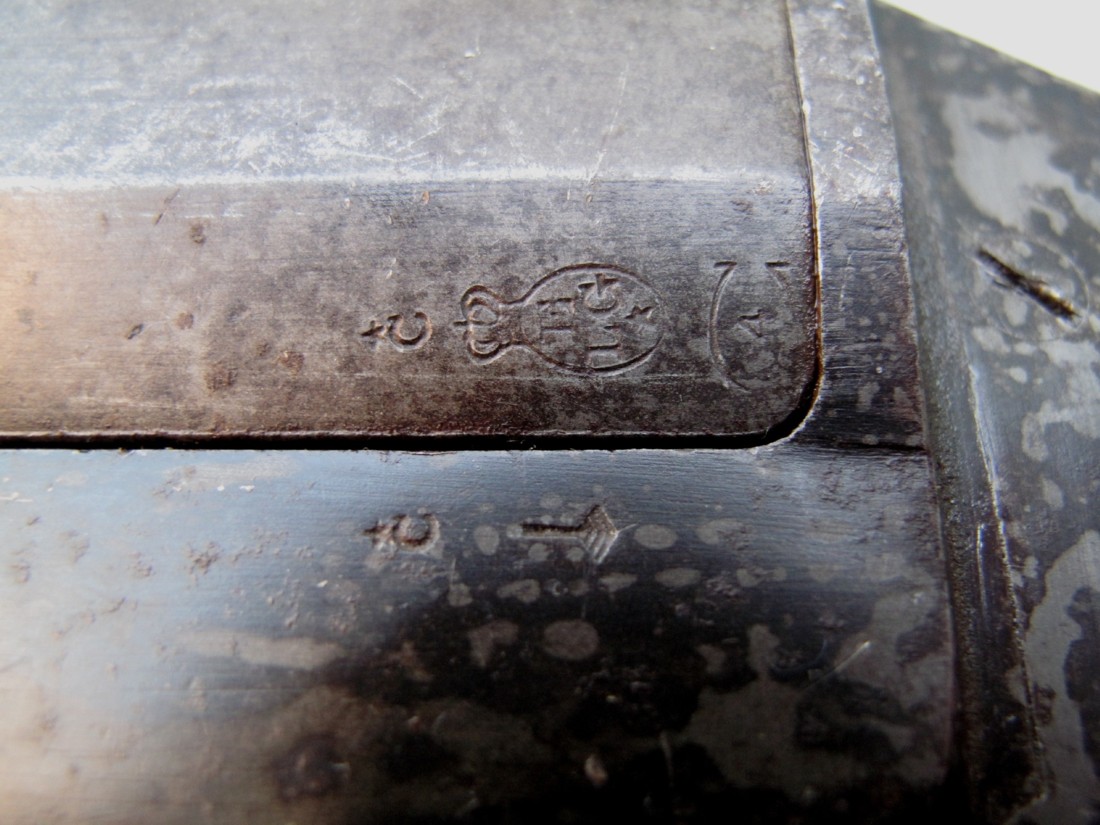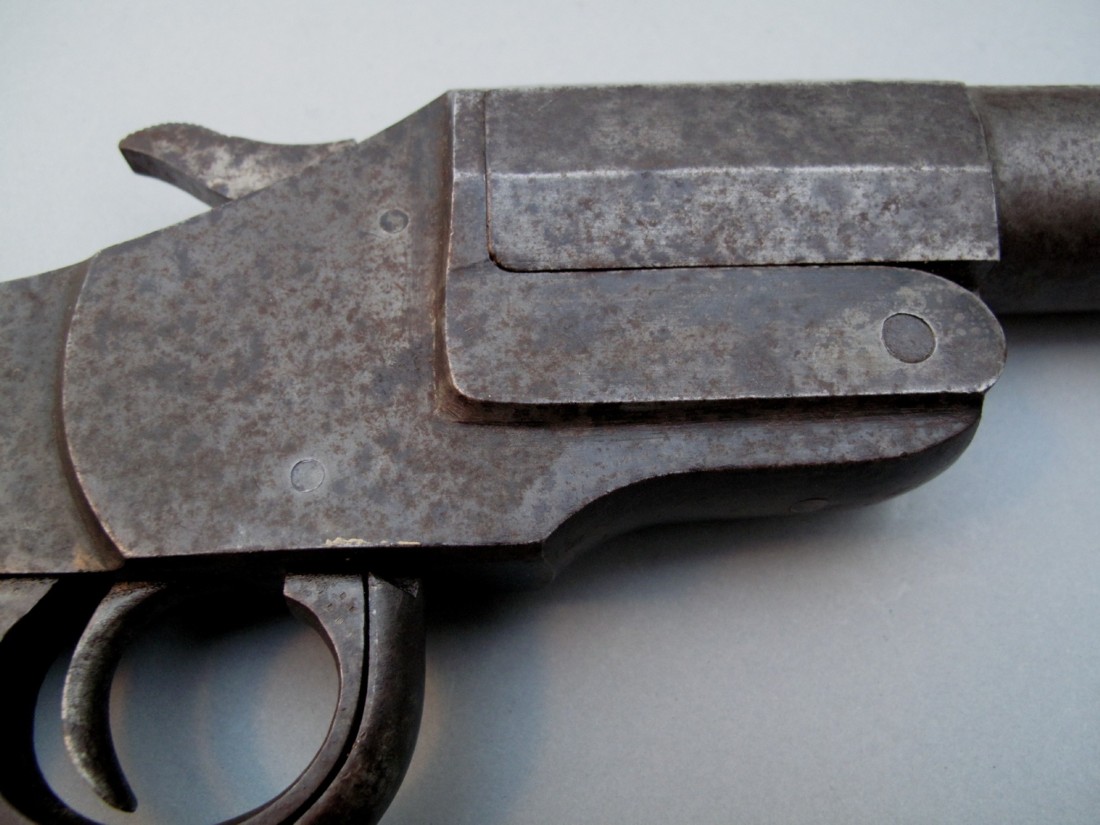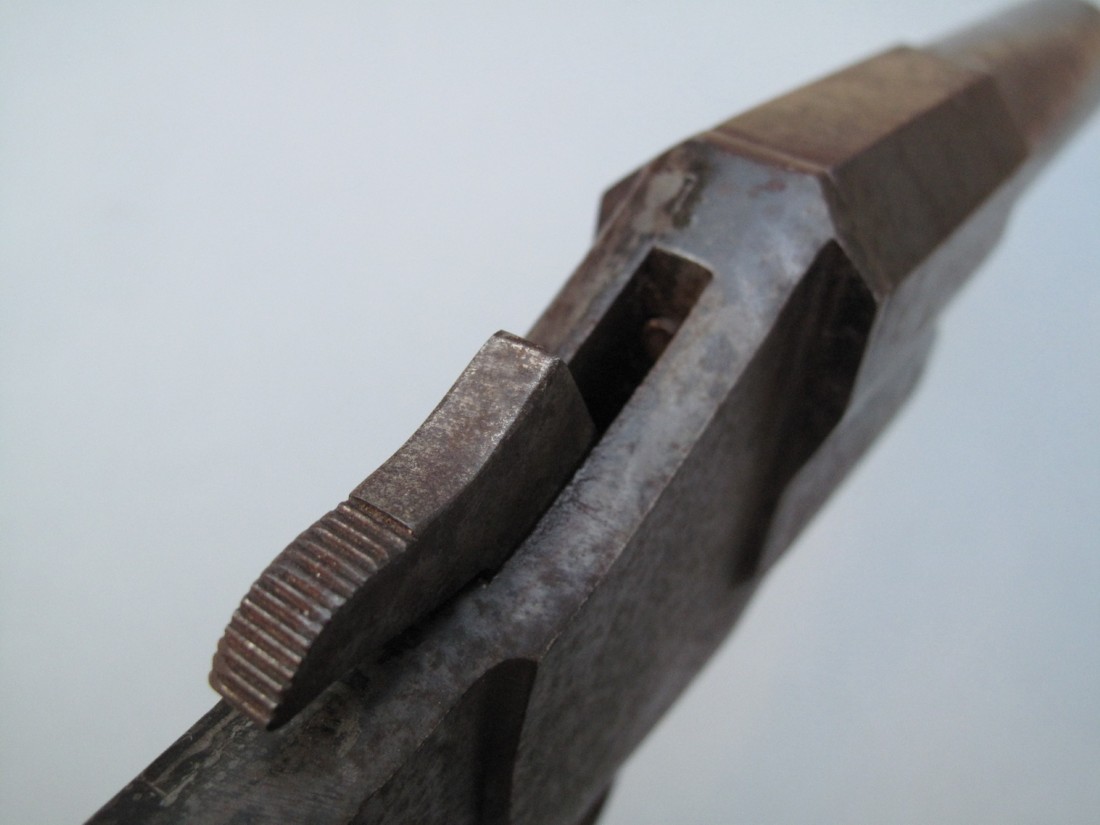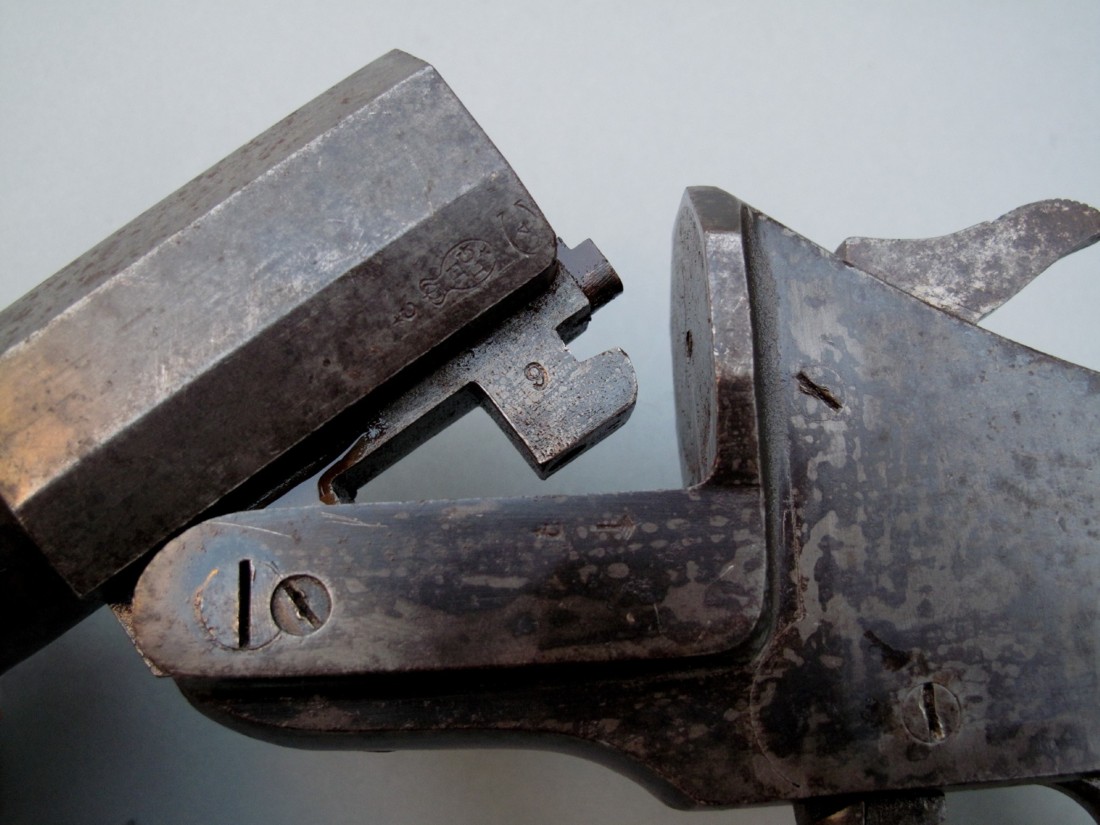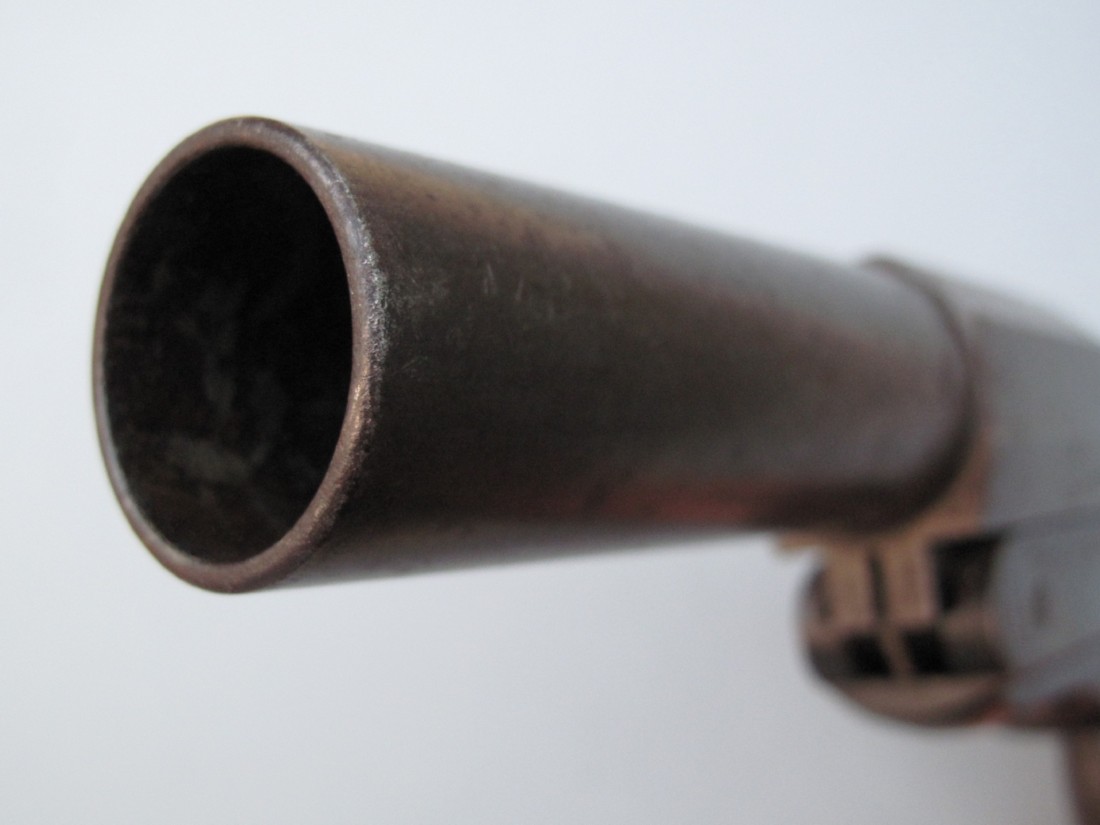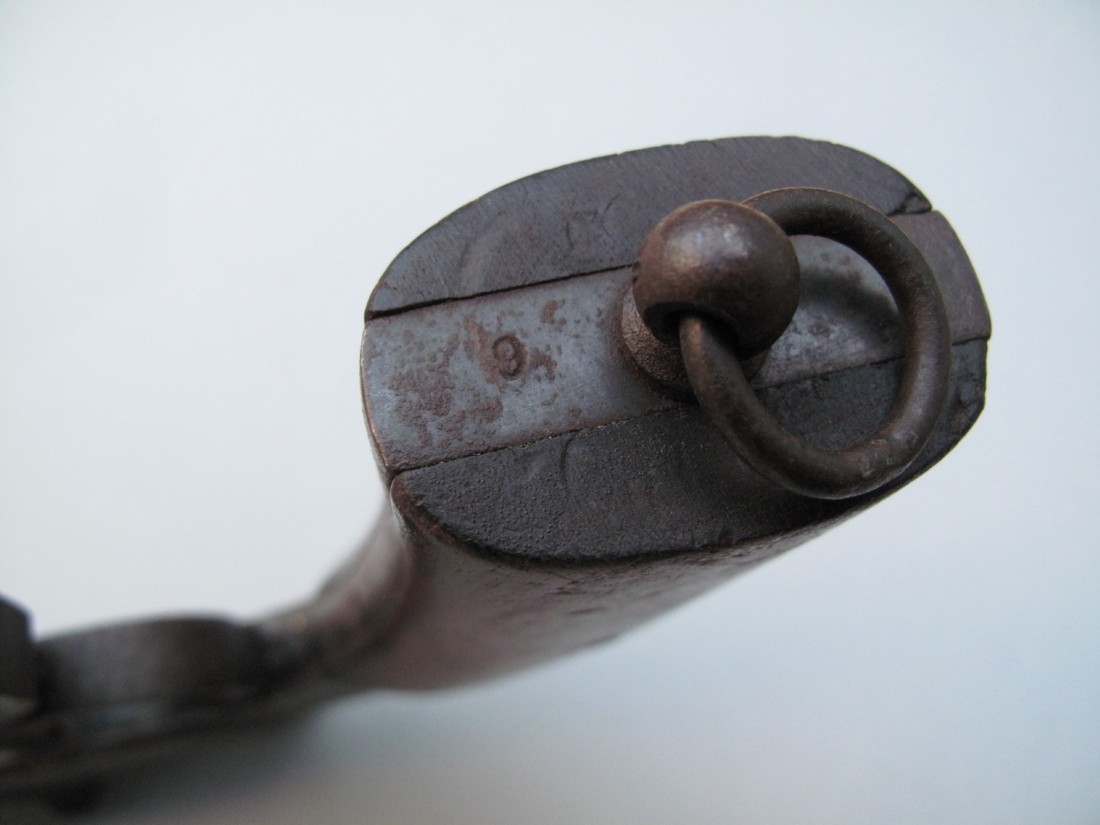Pistol Hebel "Belgian"
The signal gun model Hebel M 1894 abroad.
Belgium and Holland.
Belgium adopts the principle of construction of the Hebel, making a remarkable
difference. Indeed, the Belgians decided to exchange the hammer, hitherto
equipped with a tip forming percussion, for a flat hammer, because their variant
would be equipped with a percussion floating on the carcass.
If the origin of these weapons is not always
indicated, some models are engraved “A.
Francotte à Liège” or “Fabrique
d’armes F. Delu & Co. Liège”.
The latter manufacturer was awarded a delivery order for Holland: in 1938, 250
Hebel pistols were delivered by the Liège arms manufacturer to Holland, where
the weapon was put into service under the name Model 37.
Later, the Netherlands manufactured 1700 Hebel pistols in The Hague under the
direction of the manufacturer “N.V. Instrumentenfabriek Waldorp.”
These pistols are recognisable by the marking “WALDORP HAAG HOLLAND” on the left
side of the carcass. Identical to their Belgian competitors, the Dutch pistols
are numbered on the right side of the casing and barrel.
On Belgian products of the manufacturer
F. Delu,
the serial number is located under the handle, next to the cap ring or on the
right side of the carcass and barrel. Other Belgian specimens examined do not
bear the manufacturer’s number or marking.
Belgium, too, had received Hebel pistols of German origin as a repair after
1918. They were reintegrated into the Belgian army. This explains the existence
of German models marked with a Liege stamp.
The Hebel pistol was the most requisitioned weapon in 1914-18. Models with
British or American markings bear witness to this even today.
GAZETTE DES ARMES N°364 AVRIL 2005
Wolfgang Kern
